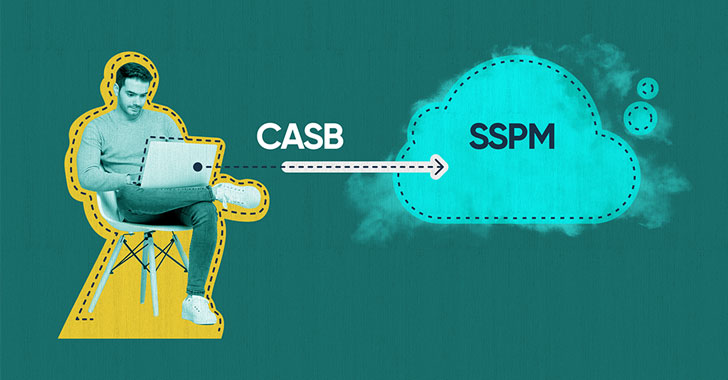Products You May Like
There is often confusion between Cloud Access Security Brokers (CASB) and SaaS Security Posture Management (SSPM) solutions, as both are designed to address security issues within SaaS applications. CASBs protect sensitive data by implementing multiple security policy enforcements to safeguard critical data. For identifying and classifying sensitive information, like Personally Identifiable Information (PII), Intellectual Property (IP), and business records, CASBs definitely help.
However, as the number of SaaS apps increase, the amount of misconfigurations and possible exposure widens and cannot be mitigated by CASBs. These solutions act as a link between users and cloud service providers and can identify issues across various cloud environments. Where CASBs fall short is that they identify breaches after they happen.
When it comes to getting full visibility and control over the organization’s SaaS apps, an SSPM solution would be the better choice, as the security team can easily onboard apps and get value in minutes — from the immediate configuration assessment to its ongoing and continuous monitoring. By fixing these configuration weaknesses and misconfigurations in the SaaS stack, the security team is actually preventing a leak or breach.
➤ How to ensure your company’s SaaS security
To fully understand why SSPM is the ideal solution for today’s SaaS environment, it’s best to take a look at the challenges that accompany these deployments.
Today eighty-five percent of InfoSecurity professionals cite SaaS misconfigurations as one of the top three risks facing today’s organizations. The challenge stems from what we like to call the three V’s of SaaS Security:
- Volume: With an increasing number of apps to manage, configure, and update – each with its own security settings – security teams need to ensure each app is compliant with the company’s policies. With hundreds of app setups and tens of thousands of user roles and privileges, this quickly becomes an impossible and unsustainable scenario. According to our2021 SaaS Security Survey Report only 12% of companies said they are able to check for SaaS misconfigurations weekly.
- Velocity: The SaaS environment is dynamic and continually changing. As employees are added or removed and new apps are onboarded, security teams must continuously ensure that all configurations are enforced company-wide. The dynamic nature of the security environment adds even more pressure to already overwhelmed security teams.
- Visibility: Most SaaS apps are purchased by and implemented in the departments that utilize them most. This leaves security teams in the dark, unaware of the app owner’s usage behavior and whether or not they stay on top of potential risks. Employees with admin access or privileges can leave a company exposed, as they are untrained in security matters and more focused on their productivity, making it crucial for SaaS apps to be configured correctly and regularly monitored by the organization’s security team.
SaaS app providers build in robust security features that are designed to protect company and user data, yet whether the features are implemented correctly are another matter.
The configurations and enforcement fall under the responsibility of the organization utilizing the app.
A SaaS Security Posture Management solution, like Adaptive Shield, is critical to the security of today’s enterprise. Gartner predicts SSPM will increase its impact over the next five to ten years. With its ability to effectively manage this chaotic SaaS environment, SSPM can continuously assess and manage the security risk and posture of SaaS apps and prevent configuration errors and advanced attacks. While CASBs do address an organization’s security gaps at the SaaS layer, they are, as mentioned earlier, primarily reactive, focusing on the detection of breaches once they have occurred.
When it comes to preventing misconfigurations, proactive identification is key, making SSPM the best option to ensure a secure and safe SaaS environment.
➤ Learn more about how to ensure your company’s SaaS security
